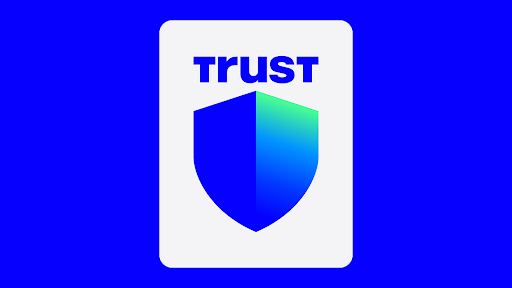Okay, so check this out—I’ve been messing around with a bunch of crypto wallets lately, trying to find the one that really clicks with how I handle my digital assets on the go. Wow! You wouldn’t believe how many wallet apps promise security but mess up on user experience. My gut kept nudging me toward something that balances ease with serious safety. That’s when Trust Wallet popped up on my radar.
At first glance, Trust Wallet looks pretty straightforward—clean interface, simple navigation. But then I started digging deeper, and honestly, something felt off about other wallets I’d tried before. They either demanded too much personal info or didn’t support the coins I actually use. Trust Wallet, though? It supports a crazy wide variety of cryptocurrencies, which is rare for a mobile wallet. Plus, it’s non-custodial, meaning you hold your private keys yourself. That’s very very important in this space.
Seriously? Managing keys yourself sounds scary, right? Here’s the thing. The wallet guides you through setting up a secure backup phrase. It’s like having the keys to your house—you gotta keep them safe, but it means no one else can barge in. Initially, I thought that would be a dealbreaker for many users. But then I realized, with all the hacks and breaches we hear about, giving up control to a third party is actually riskier. On one hand, you want convenience, though actually, control trumps convenience in crypto security.
One part that bugs me sometimes is when you’re juggling multiple wallets or accounts. Trust Wallet makes it easy to manage multiple coins under one roof. And oh, by the way, it supports decentralized apps (dApps) right on your phone. That was a surprise! I didn’t expect a mobile wallet to handle dApps so seamlessly. It’s like having a mini crypto ecosystem in your pocket.
Check this out—the wallet also integrates with Binance DEX, letting you trade crypto without handing over your assets to an exchange. That’s a huge plus for anyone worried about exchange hacks or withdrawal delays. I’m a bit biased, but this feature alone makes Trust Wallet worth a shot if you’re serious about crypto security on mobile.

Security Meets Simplicity: Why It Works for Mobile Users
Trust Wallet’s security model is simple yet effective. Your private keys never leave your device, and the app doesn’t store any personal info on servers. This decentralization reduces attack surfaces dramatically. Initially, I thought mobile wallets were inherently less secure than desktop ones, but using Trust Wallet changed my perspective. The app uses biometric authentication like fingerprint or FaceID, which adds a layer of convenience without compromising security.
Hmm… I wasn’t sure about trusting an app with such critical info until I read about its open-source nature. The community audits the code, which means vulnerabilities are spotted and patched quickly. This openness contrasts sharply with some proprietary wallets that keep their security measures under wraps. Transparency builds trust—literally.
Another angle to this is how Trust Wallet handles backups. It gives you a 12-word seed phrase during setup, which you must store safely. Losing that phrase means losing access to your funds—no customer service can fix that. Sounds harsh, but it’s exactly what gives you full control. Actually, wait—let me rephrase that: this responsibility is a double-edged sword. Some users might find it daunting, but it’s the price for true ownership.
And here’s a neat tidbit: Trust Wallet supports staking on certain coins. That means you can earn passive income directly through the app by locking up your tokens. I tried staking some BNB, and it was surprisingly straightforward. Not many mobile wallets offer this without complicated setups.
Something else worth mentioning is the app’s speed and responsiveness. On my iPhone, it never lagged or crashed, which is crucial when you’re trying to move fast in volatile markets. Honestly, that’s a relief because I’ve dealt with some clunky wallets that made me second guess my trades.
Is Trust Wallet the Best Choice for You?
Here’s where things get nuanced. Trust Wallet shines for users who want a secure, multi-coin wallet that doesn’t babysit you but gives you full control. If you’re comfortable managing your own keys and backups, it’s a solid pick. But if you want something ultra-simple without the responsibility of seed phrases, maybe it’s not quite there yet for you.
Also, the wallet is free—no hidden fees. That’s a big deal compared to some other wallets that charge for premium features or have confusing fee structures. I’m not 100% sure how they sustain it, but I suspect the backing by Binance plays a role here.
One quirk I noticed is that while Trust Wallet supports tons of cryptocurrencies, some lesser-known tokens require manual addition via contract addresses. It’s not super user-friendly for beginners, but for those with a bit of experience, it’s manageable. This part bugs me because it could discourage newbies.
Oh, and by the way, if you want to download the official app, make sure you get it from a trusted source. I found the safest place is through https://sites.google.com/trustwalletus.com/trust-wallet-official/. Always double-check the URL—there are fake versions out there.
So, yeah, Trust Wallet isn’t perfect, but it hits a sweet spot for a secure, versatile, and user-friendly mobile crypto wallet. My instinct says it’s worth trying if you’re serious about crypto on your phone.
Frequently Asked Questions
Is Trust Wallet safe for beginners?
It’s safe in terms of security protocols, but beginners must understand the importance of backing up their seed phrase. The app doesn’t store your private keys, so losing that backup means losing access forever.
Can I use Trust Wallet for all cryptocurrencies?
It supports a wide range, including Ethereum, Binance Smart Chain, and many tokens. However, some tokens might need manual addition using contract addresses.
Does Trust Wallet charge fees?
The wallet itself is free, but you pay network fees for transactions, which vary depending on the blockchain you’re using.
